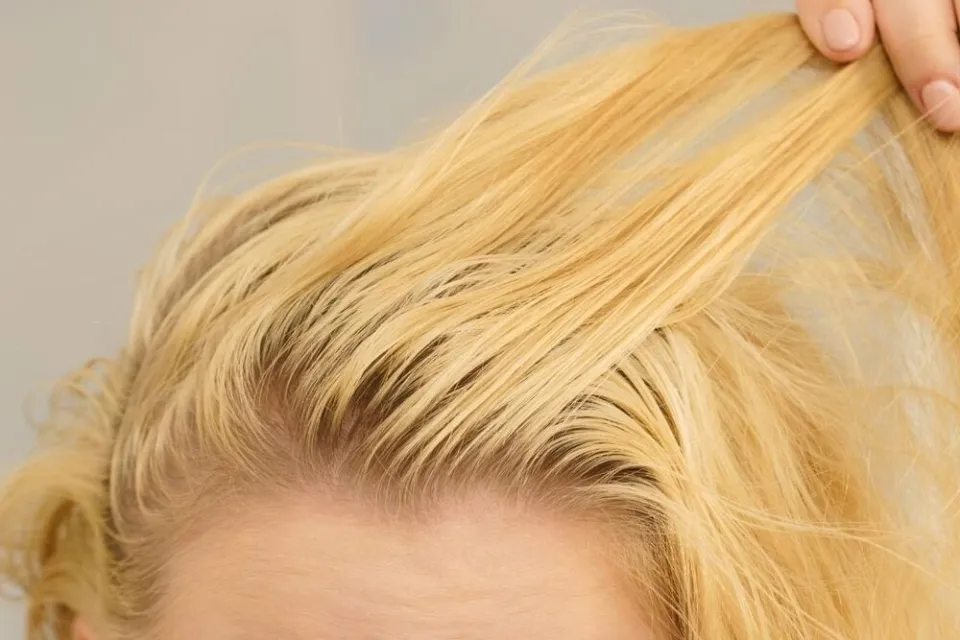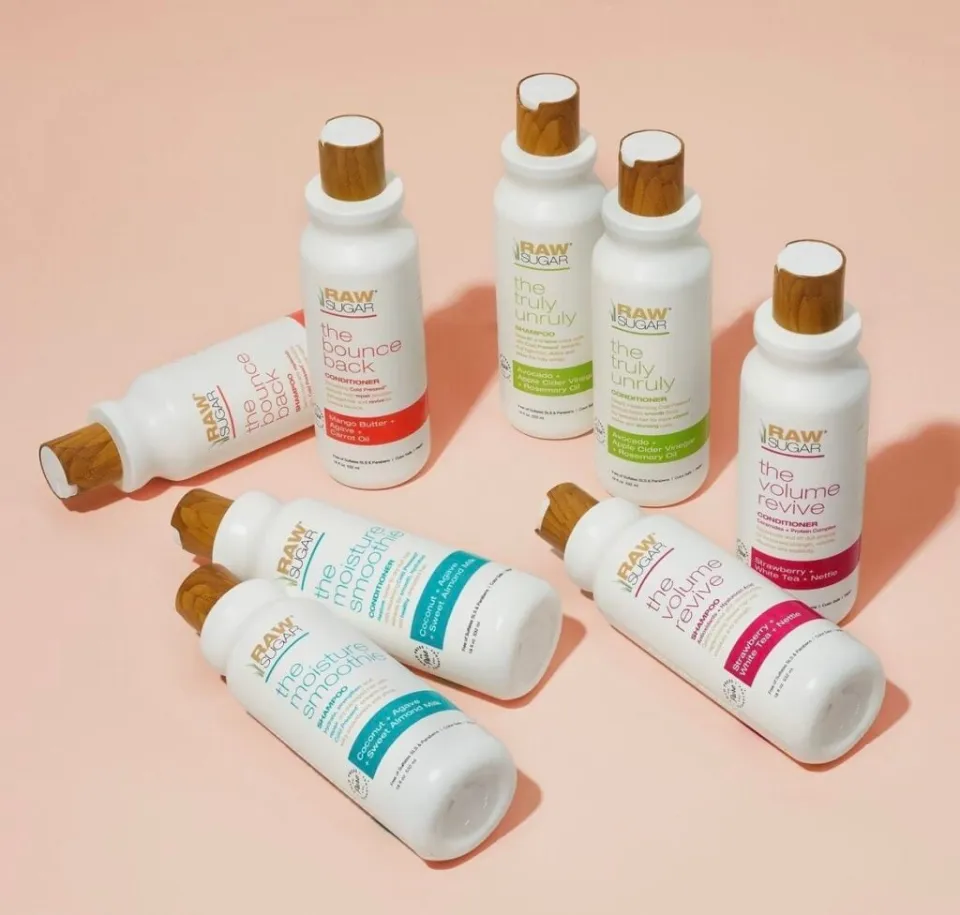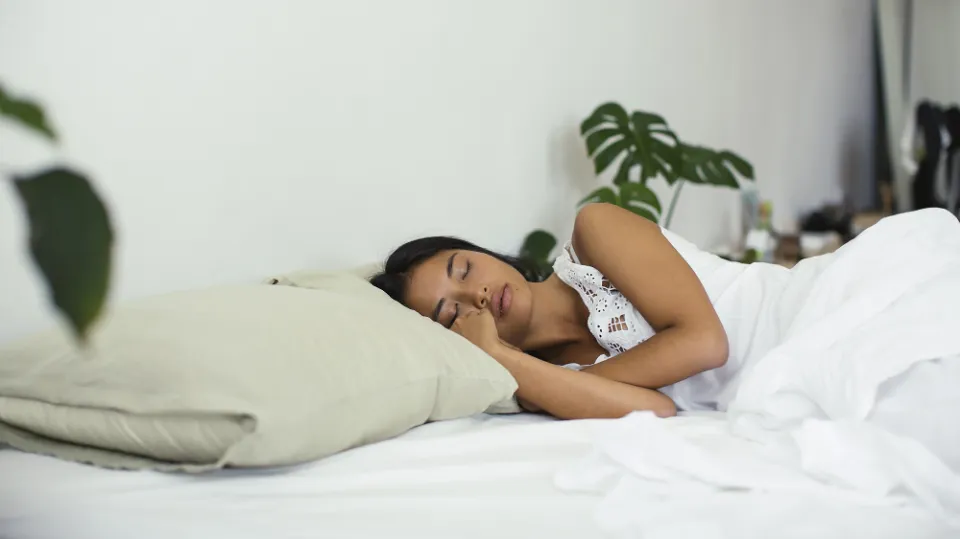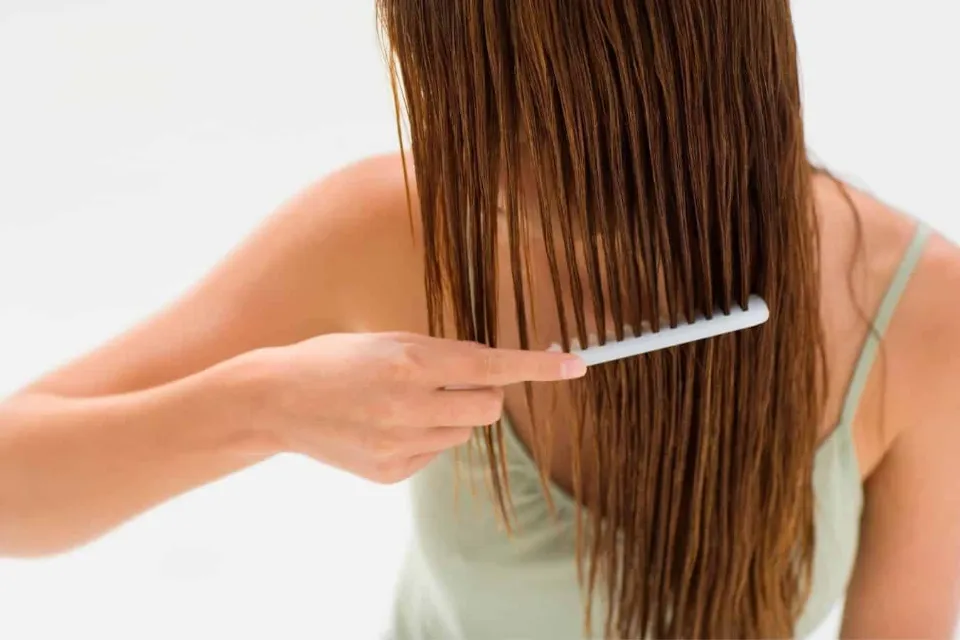Why does my hair feel waxy? There are a number of things that can cause hair to feel waxy, including heavy ingredients, infrequent washing, and improper rinsing.
Your hair is not damaged if it feels greasy or waxy. Learn why your hair feels waxy and what you can do to fix it by reading on.
What is Waxy Hair?
Hair can become waxy for a few reasons. Product buildup is the main reason why hair feels waxy. Next, stress and other health problems can result in waxy hair.
Your hair may also feel waxy as a result of harsh chemical treatments or specific medications. Finally, hard water can cause waxy hair. “Waxy” hair is hair that feels sticky, gunky, or greasy even after washing.
After a wash, your hair might not have the usual bounce or shine, or you might feel grease on your fingers when touching it. Your scalp might itch, and you may notice that you need to wash more frequently to make your hair feel clean.
Read More:
Why Does My Hair Feel Waxy?
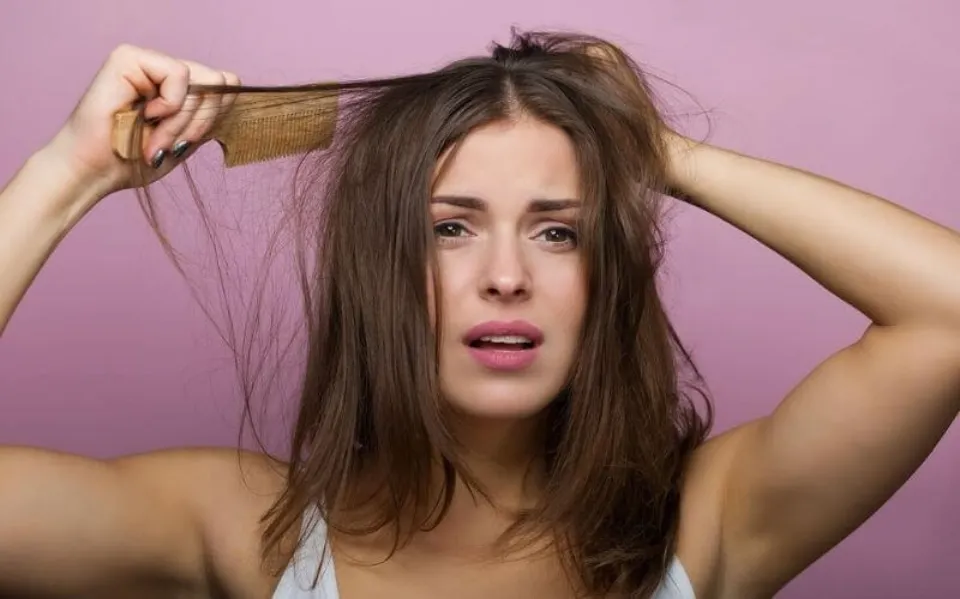
If you’re tired of having greasy or waxy hair, feel embarrassed to wear your hair down, or if you’ve switched up your wash routine and products but seen no improvement, it might be time to look at one of these underlying causes to address the issue.
1. Product Buildup
Product buildup is the most frequent reason for waxy hair. Because many shampoos and conditioners contain heavy, water-resistant ingredients that cling to the hair, product buildup can still happen even if you wash your hair frequently.
Silicones
Silicones and sulfates are common ingredients in shampoos and conditioners. These buzzwords have gotten a lot of attention due to the “Low-Poo” and “No-Poo” movements — but what are they exactly?
Silicones are used in hair care products as lubricants to provide moisture and “slip” to hair strands. They are responsible for the soft and manageable feeling that hair has after conditioning.
Silicone molecules close pores and voids in the hair, giving dry hair a healthier appearance. If you have frizzy, dry, or difficult-to-manage hair, silicones may be helpful. They also make hair shinier and easier to brush.
However, they are not a real solution to damage or split-ends — they are merely a band-aid on the problem. Over time, silicones build up on hair follicles, weighing hair down and leading to waxiness.
Sulfates
“Sulfates” is the other buzzword that has gotten attention from the “curly-girl metnod” and low/no-poo movements in recent years. Sulfates are responsible for the gratifying lather in shampoo. They are also excellent at removing dirt and oil from hair and getting hair “squeaky” clean.
The problem with sulfates is that if you use them every day, they will strip the natural moisture out of your hair and scalp. Your body produces excess oil as a result, making your hair even oilier. However, use them sparingly. Sulfates are essential for hair care.
Sulfates aid in removing buildup from gels, leave-in conditioners, and other hair products. Washing with a sulfate shampoo once every two weeks, or once a week at most, ought to be sufficient to reap the benefits without running into any problems.
2. Medical Conditions
Many people have underlying health issues that can lead to greasy or waxy hair. These may include bacterial or fungal infections, hormonal imbalances, stress, poor eating habits, or sleep deprivation.
Seborrhea
A hormonal imbalance is the root cause of the common skin condition seborrhea. Dandruff is the name for seborrhea that affects the scalp. White flakes, itching, and redness are symptoms of seborrhea. You may have seborrhea if you notice that your scalp itches and your hair is waxy.
There are many shampoos available on the market that can treat dandruff; Head and Shoulders is the most popular and a great choice. You might want to ask your doctor to prescribe medication if the condition is very severe.
Salt water is an additional fantastic and cost-free treatment for seborrhea. The removal of dandruff with daily salt water rinses is effective without the use of medication.
Just remember that while salt water is fantastic for your skin, it can also dry out your hair. Make sure to use a good, sulfate-free conditioner and to rinse the ends with fresh water after using a salt rinse.
Poor Diet, Stress, and Lack of Sleep
Improving diet, engaging in regular exercise, and getting enough sleep can all help with many cosmetic issues. Lack of sleep, poor diet decisions (such as consuming excessive amounts of sugar or caffeine), and stress are frequently made worse by these factors.
It’s a vicious cycle, as you can see, and it’s difficult to escape. More than just your waistline benefits from eating a balanced diet and exercising regularly.
You can strengthen your skin, hair, and nails by eating foods high in nutrients like iron, zinc, vitamin E, and vitamin B. Healthy, fuller hair results from protein-rich diets. Your body can regulate stress levels and sleep cycles with regular exercise.
Waxy hair could be one sign of an unhealthy lifestyle if you aren’t getting enough sleep, eating well, or exercising regularly.
3. Hair Damage

Our skin and hair are exposed to a lot daily. Our hair’s appearance and texture may be impacted by the sun, wind, water, and air pollutants. Even though you might anticipate damage to result in dry or unruly hair, you should be aware that environmental damage can also result in greasy or waxy hair.
Sun Damage
The outer layer of the hair, known as the cuticle, can become damaged when exposed to UVA or UVB rays for an extended period of time. Because of this, hair feels frizzy or dry. Additionally, it indicates that the hair dries easily, is brittle, and won’t hold a curl.
While sun damage won’t cause waxy hair by itself, attempts to repair sun damage may. Contrary to popular belief, sun-damaged hair cannot be restored through conditioning.
Conditioners only make hair look softer — they do not reverse the damage. Additionally, conditioners that contain silicones and parabens can weigh hair down and lead to greasiness.
Salt and Pool Water Damage
Salt water and chlorine, like the sun, can dry out hair and make it frizzy, brittle, and breakable. These can ruin your hair in the summer when combined with sun damage.
Similar to attempts to reverse sun damage, attempts to reverse salt or chlorine damage frequently only result in further issues as conditioners and products with silicones are loaded onto the hair, leading to product buildup.
The best defense against damage from the sun, salt water, or chlorine is to rinse your hair with fresh water as soon as you get out of the ocean or the pool. The damage will be much less if you don’t allow the chemicals to reach your hair follicles.
Read More: Can Fleas Live in Human Hair?
4. Hard Water
Hard water is water that has a high mineral content, particularly calcium and magnesium. In America, relatively hard water is found in most homes. Hard water minerals can accumulate in hair over time, causing weight or waxiness.
One of the best ways to prevent this from happening is to rinse your hair with filtered water after a shower.
The same excess minerals that your Brita filter filters out of your drinking water can also be removed from the water in your shower. You could either install a Brita shower filter or just use the water coming from the fridge filter.
How to Get Rid of Waxy Feeling Hair?
Fortunately, getting rid of waxy hair is relatively simple—although it may take a bit of trial and error to find the right method for your particular scalp type.
1. Use Clarifying Shampoo
Look for a clarifying shampoo that includes baking soda or apple cider vinegar; these ingredients will assist in breaking down the wax without robbing the scalp of necessary moisture or damaging delicate strands.
2. Washing Your Hair With Dish Soap
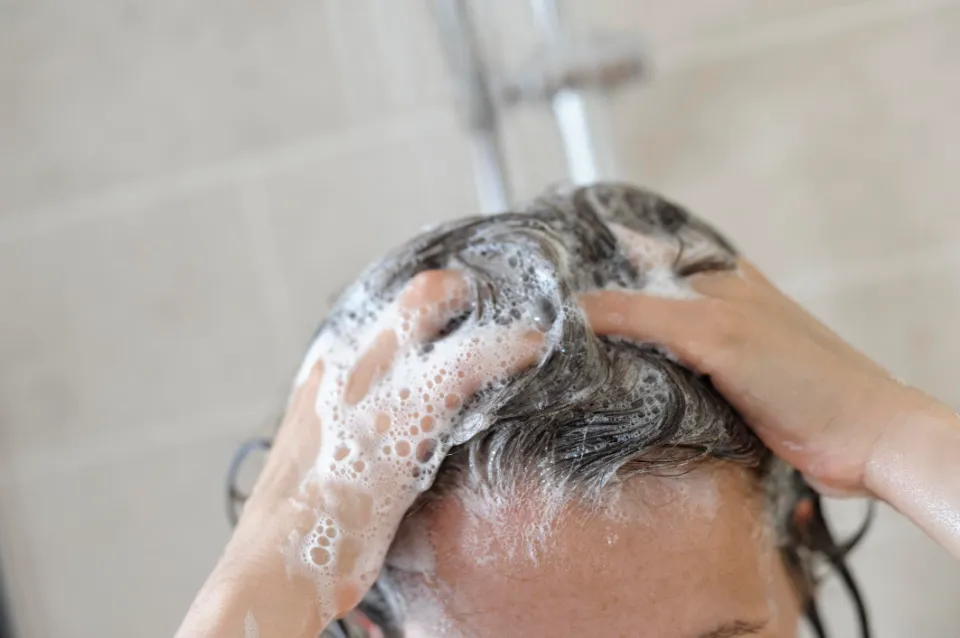
The dish soap you use to wash your dishes will also help you remove wax buildup from your hair, so it really works. Just be sure to thoroughly rinse afterward, as dish soap can be very harsh on both skin and hair if not completely removed.
3. Try DIY Solutions
If all else fails you can try using natural formulas like vinegar rinses or lemon juice mixtures (just Google “DIY clarifying shampoo” for recipes).
When using these techniques, we advise exercising caution because they can be quite drying to the skin and hair and might not be appropriate for everyone.
Final Thoughts: Why Does My Hair Feel Waxy
Waxy hair is hair that feels stiff, limp, greasy, or gummy. It typically means that your hair has product buildup or has been harmed, either by the environment or through overuse of chemicals.
To treat waxy hair, try using shampoos without sulfates, getting a trim, and protecting your hair from future damage.
If you still experience excessive hair waxiness after you have tried out most of these solutions, then I would recommend that you seek help from a medical professional as there could be an underlying health condition leading to this problem.
You Might Also Like: How to Care for Wavy Hair?
FAQs
Can Natural Remedies Help Get Rid of Hair Waxiness?
Yes, using natural remedies can help with waxiness in the hair as well as product buildup on the scalp. Use natural ingredients like baking soda, apple cider vinegar, or even make your own scalp exfoliating scrubs.
Why Does My Hair Feel Waxy After Drying?
The ingredients in the products we use, including wax itself, are one of the most frequent causes of waxy-feeling hair.
Why Does My Hair Feel Rubbery?
Straw-like hair is often the result of common hair care oversights, such as these: using drying and styling tools (dryers, curling irons, electric rollers, flat irons) at too high a heat setting.

